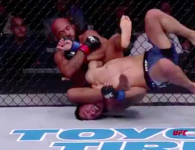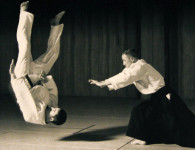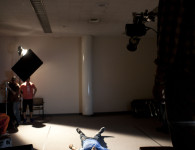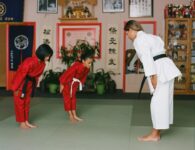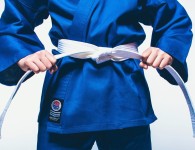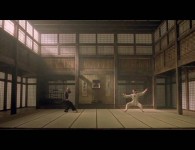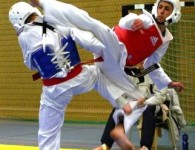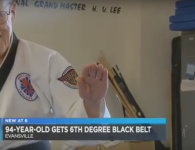The UFC star-making machine suffered another blow this weekend when Sage Northcutt faced his first ever professional loss against Bryan Barberena at UFC on Fox: Johnson vs Bader on January 30. The 19 year old, who has been hyped as one of the UFC’s hottest new prospects since signing with the promotion just last fall, tapped to a an arm-triangle choke from half guard in the second round, arguably before Barberena even had a chance to improve his position or tighten the choke. This is just the latest in a long list of high profile losses in recent UFC history. While there’s nothing uncommon about loss in competitive sports – one-on-one combat produces exactly as many losers as it does winners, after all – there’s something particularly dramatic and devastating about the current crop of defeats. Much like Northcutt, the similarly hyped young Paige VanZant faced her first UFC loss in December, submitting to a choke after failing to do much more than survive against a stunningly impressive Rose Namajunas for four and a half rounds. Chris Weidman’s two and a half year reign as the Middleweight champ came to an end as the result of a definitive round four TKO loss against Luke Rockhold in the co-main event at UFC 194 in December. In the very next match, longtime UFC Featherweight champ Jose Aldo suffered his first loss in a decade when new champ Conor McGregor knocked him our just 13 seconds into their long-anticipated bout. Former undefeated WMMA sensation Ronda Rousey fell to new Bantamweight champ Holly Holm at UFC 193 in November. This means that many of the UFC’s biggest and future stars are currently facing one of the most painful but important components in any good martial arts career: loss. It’s something that every martial artist has to grapple with eventually. Even fighters with an undefeated professional record have had to confront some amount of resolve-testing defeat in the their training and their practice. But while losing will never feel particularly fun or inspiring, it doesn’t have to be the end of the world. In fact, it can be one of the best lessons you’ll ever have on the mats, in the ring, or in the cage. With Northcutt and company’s defeats fresh on our minds, let’s take a moment to look at how the competitive martial artist can cope with an learn from loss. Before the real healing and learning can occur, though, we have to make sure our heads are in the right place about this whole losing business and what it really means. “The key to dealing with loss is to differentiate it from failure,” Leif H. Smith and Todd M. Kays write in their 2010 book, Sports Psychology for Dummies. “Losing and failing are two separate things. Losing means that your opponent had the better score or time at the end of the competition. You can fail in your game execution or fail in your match goals but still win the competition. Failure is about whether you reached your goal; losing is only about whether your opponent bettered your score or time. “Losing does not equal failure. You might lose a game or certain competition, but not fail because it was one of your personal best performances. In the same way, you may win, but still fail because you didn’t do your best.” It’s also important to be realistic about what loss means for you personally, both as a competitor and a human being. You can’t start to analyze what might have gone wrong and what you might want to improve after a competition that didn’t go the way you planned until stop beating yourself up for being less than perfect. “The simple truth is this: you are who you are at this moment in time. If you could be different (fitter, faster, stronger longer), you would be. That fact that you aren’t means, at the moment, you can’t!” martial arts instructor Matt Jardine writes in the Jiu Jitsu Style article Learning to Lose and Benefiting From It. “So relax. Accept it. Stop fighting it. Be kind to yourself. This isn’t to say that we shouldn’t strive to be better – of course we should; this is why we show up at the academy every week, but it is healthier to learn to accept our weaknesses and work with them positively rather than routinely chastising ourselves for not yet being ‘something’ or ‘someone’ we would rather be.” And if you have any lingering feeling of anger or resentment, a ridiculous grand gesture or moment of silliness can sometimes help exorcise those demons. After UFC legend Georges St. Pierre suffered a knockout loss against Matt Serra in 2005 that cost him his Welterweight belt and most of his confidence, his sport psychologist suggested that he write Serra’s name on a brick and hurl it into the water. “Actually I thought it was kind of weird, but I felt better after,” GSP says of the experience. Once you’re ready to approach the situation with both calmness and kindness, look back at your performance and take an honest assessment of what you did wrong in your competition – but don’t forget to list what might have done right, too. Then make a list of what you believe you can improve in your practice, and how you want to go about making those improvements. Then get back on the mats and go for it! Matt Jardine wrote the following for a Brazilian Jiu-Jitsu audience, but the ethos can apply to any martial art: “The lesson for us as BJJ competitors is to compete more! Compete regularly. Compete gi. Compete nogi. Compete at your academy comps. Compete at local comps. Compete at IBJJF’s. Just compete. A lot! Nothing will teach you to lose better than being in that situation again and again and again (obviously, do try and win if you can).” It looks like Northcutt has already reached that stage in his own journey. Appearing on the MMA Hour earlier this week, the young fighter said that he will be changing his training environment and working at the Tristar gym, based in Montreal, full time now. “I know I have a lot to learn. I’m excited to go to Canada and go train in Tristar, and learn as much as I possibly can. I’ll definitely be learning a lot and be the best you’ve ever seen for the next fight.” The most important thing you can after a loss though, is not give up. In Understanding Losing and How It Helps You Grow, the team at Gracie Barra remind martial artists put it this way: “The greatest winners of our time where losers. Instead of being mauled down by the feeling of not winning, they pursued on. Thomas Edison was reported to have failed more than 10,000 times in the creation of the light bulb. If failing more 9,999 times was didn’t humble him, he wouldn’t have been successful in the end.” Do you have any memorable losses you want to share? Any tips on how to learn from those experiences? Let us know in the comments!
How To Lose Well: The Least Fun (But Most Important) Lesson We’ll Ever Learn in Martial Arts
0
« Previous PostAn Interview With AWMA Sponsored Athlete Emma Teo
Next Post »Pride and Prejudice and Zombies Might Be Funny, But It Takes Its Martial Arts Very Seriously






